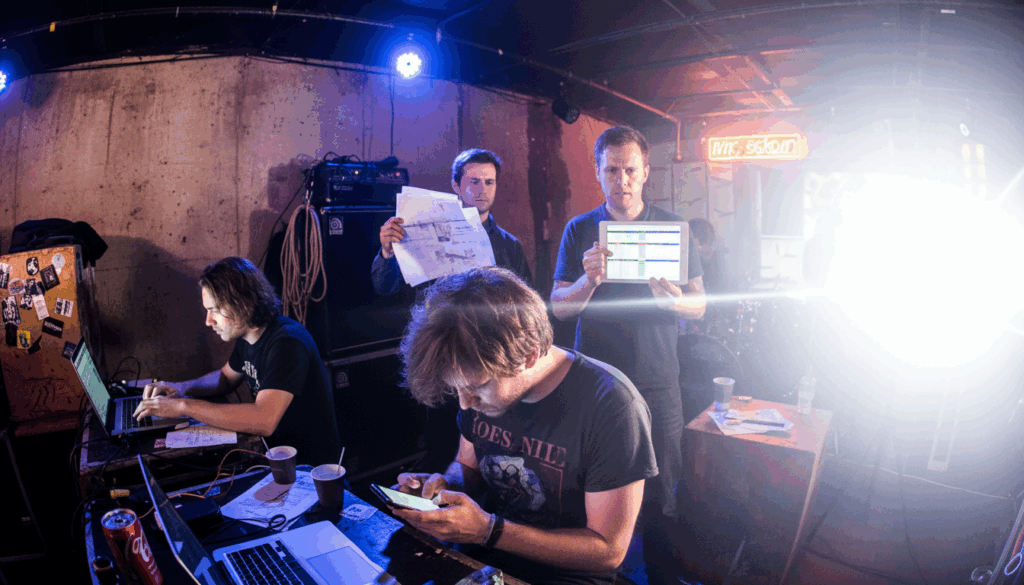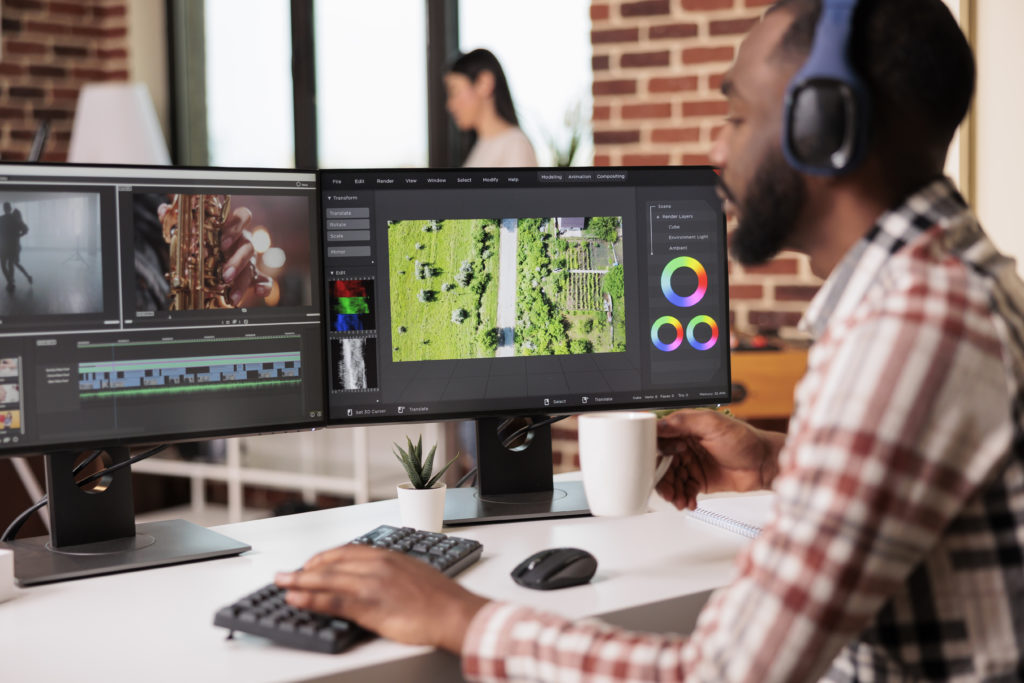
Common Mistakes Promoters Make Without the Right Tools
Music promoter workflow inefficiencies cost the industry millions annually through missed opportunities and manual errors. Key issues include:
- Spreadsheet chaos limiting deal tracking
- Fragmented communication creating costly miscommunications
- Manual settlement processes prone to errors
- Reactive planning instead of data-driven decisions
Modern live event logistics platforms eliminate these bottlenecks and streamline operations.
The live music industry is booming. Global revenues reached over $34 billion in 2025, with projections showing continued growth toward a $62.59 billion market by 2034. Yet behind every sold-out show and viral moment, there’s a harsh reality most promoters won’t admit: they’re drowning in outdated systems that bleed time, money, and opportunities.
While artists are selling out stadiums and fans are clamoring for experiences, too many promoters are still wrestling with the same broken workflows their predecessors used decades ago. The modern music promoter workflow should be as sophisticated as the industry it serves, but the gap between potential and reality is wider than ever.
What Are the Hidden Costs of a Manual Music Promoter Workflow?
Here’s what nobody talks about at industry conferences: inefficient processes account for a 20–30% loss in productivity across all industries, and live music is no exception. When your entire business model revolves around deadlines, relationships, and razor-thin margins, that productivity drain translates directly to lost revenue.
Only 21% of workers are actively engaged at work, with the remaining 79% either not engaged or actively disengaged, leading to massive productivity losses. In the high-stakes world of music promotion, disengagement often stems from frustration with clunky systems and manual processes that make even simple tasks feel like uphill battles.

The average knowledge worker spends 352 hours annually talking about work rather than doing it. For promoters juggling multiple shows, artist relationships, and venue negotiations, this inefficiency becomes even more pronounced. Every minute spent hunting for information in scattered spreadsheets or chasing down email threads is a minute not spent building relationships or identifying new opportunities.
The U.S. live music market alone is projected to reach $23.52 billion by 2030, but promoters stuck in manual workflows are missing their share of this growth. They’re playing a digital-age game with analog tools, and the competition is leaving them in the dust.
Five Critical Mistakes That Drain Resources
The following issues plague promoters who haven’t modernized their operations. Each one is a fundamental threat to profitability and growth.
Mistake #1: Spreadsheet Chaos in Deal Tracking
Every promoter has been there: frantically searching through a dozen Excel files to find the latest version of a deal sheet, only to discover someone made changes to an outdated copy. Version control becomes a nightmare when multiple team members need access to the same information.
Spreadsheet-based systems create data silos and reporting challenges, making it nearly impossible to get real-time insights into your business. Formula errors, accidental data overwrites, and manual entry mistakes compound over time, creating a house of cards that threatens to collapse during your busiest periods.
The delegation problem is equally severe. Try explaining to your assistant how to update the “blue spreadsheet but not the green one” for a specific venue’s holds, and you’ll quickly understand why delegating workflow tasks becomes problematic with spreadsheets. What should be simple collaboration becomes a bottleneck that slows down your entire operation.
Mistake #2: Fragmented Communication Channels
Email chains that spiral into confusion. Text messages that get buried. Phone calls where critical details are forgotten minutes later. When your communication infrastructure resembles a game of telephone, expensive mistakes become inevitable.
The average worker takes 23 minutes to regain focus after an interruption, and promoters face constant interruptions from agents, venues, artists, and team members across multiple platforms. This fragmentation creates opportunities for miscommunication that can tank deals or damage relationships.

Consider what happens when venue availability changes or an artist’s rider requirements shift. In a fragmented system, that information needs to be manually distributed across multiple channels, often resulting in some team members working with outdated information. The downstream effects can be catastrophic, leading to double-booked venues or riders that can’t be fulfilled.
Mistake #3: Manual Settlement Nightmares
Settlement should be the victory lap of a successful show, but manual processes turn it into a source of anxiety and dispute. Calculations done by hand are prone to error, especially when dealing with complex percentage splits, expense reimbursements, and varying tax implications across different markets.
Artists and venues expect precision and transparency in settlement. When errors occur due to manual calculations or incomplete expense tracking, they erode trust and strain relationships that took years to build. Manual data entry is tedious and prone to errors, and the stakes are too high for guesswork.
Hours spent reconciling numbers and hunting down missing receipts are hours not spent developing new opportunities or nurturing relationships that drive future business.
Mistake #4: Reactive vs. Proactive Planning
Without integrated systems providing real-time visibility, promoters often find themselves in reactive mode, scrambling to address issues that could have been anticipated and prevented. This reactive approach is expensive and stressful, leading to suboptimal outcomes and missed opportunities.
Proactive planning requires data. Which shows performed best in specific markets? What time of year works for certain artists? How do different venue configurations affect profitability? Manual systems make this kind of analysis nearly impossible, forcing promoters to rely on gut instinct rather than data-driven insights.
The opportunity cost is enormous. While reactive promoters are putting out fires, proactive competitors are identifying trends, optimizing strategies, and building sustainable competitive advantages.
Mistake #5: Inadequate Performance Tracking
The live music industry generates massive amounts of data, but manual systems make it nearly impossible to capture and analyze this information. Without proper tracking, promoters can’t learn from successes or failures, dooming them to repeat the same mistakes.
Historical data is essential for negotiations with agents and venues. Can you quickly demonstrate your track record with similar artists in comparable markets? Do you know which venues consistently deliver the best results for specific genres? This information provides leverage in negotiations and helps justify your value proposition.
Modern analytics can reveal patterns invisible to manual tracking. Perhaps Friday shows consistently outperform Saturday shows in your market, or maybe certain sponsorship packages have higher conversion rates. These insights become competitive advantages but only if you have systems capable of capturing and analyzing the data.
How Do Poor Live Event Logistics Multiply Problems?
Live event logistics encompass everything from load-in schedules to merchandise sales, and when these elements aren’t properly coordinated, small problems cascade into major disasters. Poor logistics planning creates a domino effect that touches every aspect of your operation.
Consider venue load-in coordination. When production teams don’t have access to accurate timeline information, they might arrive before the venue is ready or after critical setup windows have passed. This creates bottlenecks that affect sound checks, which impact artist satisfaction, which influences their willingness to work with you again.
Last-minute changes due to poor coordination often come with premium costs. Need to extend venue rental because load-in ran late? That’s an unexpected expense. Have to rush-order equipment because specifications weren’t properly communicated? Another hit to your bottom line.
How Do Modern Show Promotion Tools Provide the Technology Solution?
The promoters who are thriving have embraced integrated platforms that eliminate manual processes and provide real-time visibility into their operations. These show promotion tools allow you to shift from reactive management to proactive optimization.

Modern platforms offer automation capabilities that save at least 3.6 hours weekly per user. For promoters managing multiple shows simultaneously, this time savings compounds rapidly, creating capacity for additional opportunities or deeper relationship building.
Integration is the key differentiator. Instead of managing separate systems for calendar management, financial tracking, communication, and reporting, successful promoters use platforms that connect all these functions. When ticket sales automatically update financial projections and trigger automated marketing sequences, promoters can focus on strategy rather than administration.
Real-time analytics provide the insights necessary for proactive decision-making. Modern platforms can show which marketing channels drive the most ticket sales, how different pricing strategies affect demand, and which venues deliver the best return on investment. This data becomes the foundation for continuous improvement and competitive advantage.
How Do Music Promoters Build Better Workflows for Success?
The transition from manual to automated workflows requires planning, but the benefits justify the effort. Companies with structured onboarding programs see employees who are 18 times more committed and 38% more effective, and the same principle applies to technology adoption in promotion.
Start by identifying your biggest pain points. Is settlement taking too long? Are communication gaps causing missed opportunities? Do you lack visibility into financial performance? Prioritizing these issues helps ensure your technology investment addresses the most critical needs first.
Training and change management are equally important. The best technology won’t deliver results if your team doesn’t adopt it properly. User-friendly interfaces and responsive support become crucial factors in successful implementation.
Success metrics help measure progress and identify areas for continued improvement. Are settlement processes faster? Has communication become more efficient? Can you access the information you need more quickly? Tracking these improvements demonstrates the return on your technology investment and identifies opportunities for further optimization.

The most successful promoters treat technology as an enabler rather than a replacement for their expertise. The goal isn’t to automate everything but to eliminate administrative friction so you can focus on the relationships and creative decisions that drive success in the live music industry.
Frequently Asked Questions
What are the most common manual promotion mistakes?
The biggest mistakes include relying on disconnected spreadsheets for deal tracking, using email chains for critical communication, manual settlement calculations that lead to errors, and a lack of real-time visibility into business performance. These issues create operational friction that limits growth.
How much time can automation save promoters?
Research shows that automation saves an average of 3.6 hours per week per worker. For promoters managing multiple shows, this translates to time savings that can be reinvested in relationship building, business development, or additional show capacity.
What should I look for in music promoter workflow software?
Look for integrated platforms that combine calendar management, financial tracking, communication tools, and reporting capabilities. The software should offer mobile access, real-time data synchronization, automated workflows, and robust analytics to support data-driven decision-making.
Ready to Transform Your Operations?
The live music industry waits for no one. While you’re wrestling with spreadsheets and chasing down email threads, your competition is closing deals, building relationships, and capturing opportunities. The gap between manual and modern operations will only widen as technology continues to advance. When administrative tasks become frictionless, you can focus on connecting artists with audiences and creating unforgettable experiences.
The technology exists to transform your operations. Prism provides the integrated platform that successful promoters use to eliminate manual workflows and focus on growing their business and delivering exceptional shows. Get started with the right tools today.

Matt Ford is the founder and CEO of Prism.fm, an Austin-based software company revolutionizing live music event management. With a background in entrepreneurship and a degree from the University of Wisconsin-Madison School of Business, Ford combined his self-taught coding skills with firsthand experience as a concert promoter to address the inefficiencies he observed in the industry. In 2018, he launched Prism.fm, an all-in-one platform designed to streamline operations for venues, promoters, and agencies by replacing cumbersome spreadsheets with integrated tools for booking, financial tracking, and contract management. Under his leadership, Prism.fm has grown significantly, achieving $3 million in annual recurring revenue post-COVID and securing over $15 million in funding . Ford’s commitment to building user-centric solutions has positioned Prism.fm as a trusted partner for over 1,500 venues and promoters worldwide.



